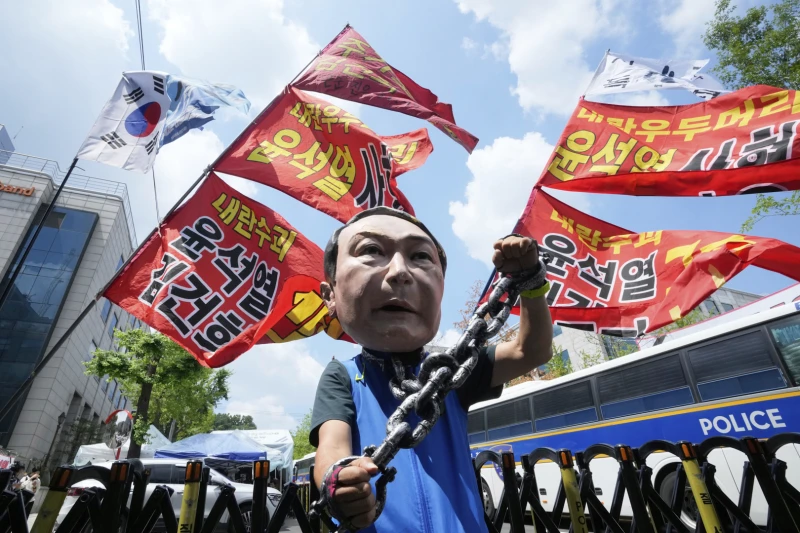South Korean court approves new arrest of former President Yoon Suk Yeol over martial law decree
- consulting aders
- Jul 11, 2025
- 3 min read
A South Korean court Thursday morning approved the re-arrest of former President Yoon Seok-yeol on charges related to his brief imposition of martial law in December, accepting special prosecutors' allegations that Yoon poses a risk of destroying evidence, according to the Associated Press in South Korea.
The arrest warrant issued by the Seoul Central District Court sent Yoon back to a detention center near the capital, four months after he was released in March. At the time, the same court overturned his arrest in January, allowing him to stand trial for treason without detention.
Yoon's criminal case is being handled by an investigative team led by special prosecutor Cho Eun-sook, who is pressing additional charges against Yoon for authoritarian behavior, including obstruction of official duties, abuse of power and falsification of official documents.

Cho's team questioned him twice before submitting an application for an arrest warrant to the court on Sunday.
Yoon's lawyers called the arrest request excessive and lacked factual basis. They did not immediately respond to the court's decision to approve Yoon's arrest. Yoon was formally removed from office in April after the Constitutional Court upheld his impeachment ruling. Yoon did not answer questions from reporters after arriving at the court on Wednesday afternoon for a hearing to review the special prosecutor's request. The hearing lasted about seven hours, after which Yoon was taken to a detention center to await the court's decision.
Yoon's re-arrest could mark a long-term detention for him, which could last for months or even longer. Yoon could initially be held in the detention center for up to 20 days while the special prosecutors try to indict him on other charges.
If Yoon is charged with new charges, he could be detained for up to six months until the court makes an initial decision. If the court ultimately convicts and imposes a prison sentence, Yoon will serve the full sentence as the case could be transferred to a higher court.
Park Ji-young, a senior investigator on Cho’s team, said they planned to question Yoon again on Friday. Yoon missed a hearing in a Seoul court on Thursday on his previous charge of rebellion, and his lawyer did not immediately explain his absence.
The former conservative leader called the imposition of martial law on Dec. 3 a necessary move to suppress “anti-state” liberal opposition and accused them of using their legislative majority to obstruct his agenda. However, Yoon’s martial law lasted only a few hours before a quorum of lawmakers broke through a blockade of heavily armed soldiers inside the National Assembly and voted to lift it.
Yoon was impeached by the National Assembly on Dec. 14 and indicted by prosecutors on Jan. 26 on charges of orchestrating an attempted rebellion, saying his power grab was an illegal attempt to seize the legislature and election offices and detain political opponents.
The charges carry a maximum penalty of death or life in prison.
Yoon also faces multiple charges, including imposing martial law without following necessary legal procedures, such as formal cabinet deliberations, and illegally deploying presidential security forces, including private military forces, to prevent law enforcement from first detaining Yoon at his residence in early January.
His liberal rival, incumbent President Lee Jae-myung, who won a snap election in June, succeeded him. Lee approved a bill last month to launch a full special investigation into Yoon's martial law scandal and other criminal charges involving his wife and the government.




Comments